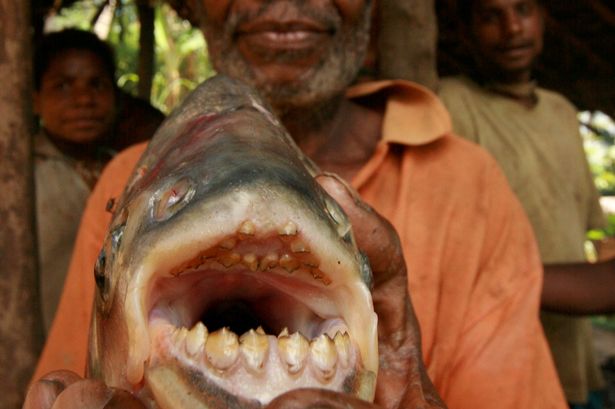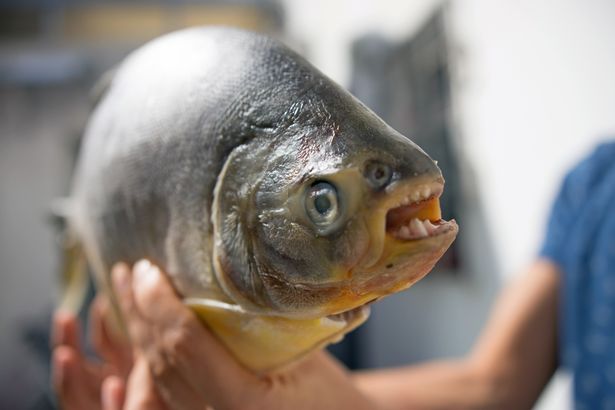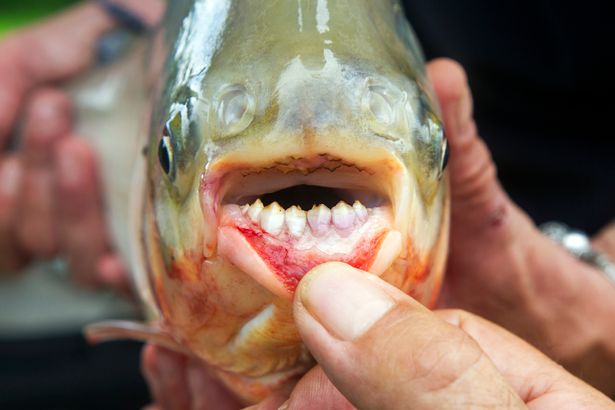Henrick Carl from Denmark’s Natural History Museum warns that while the pacu isn’t normally dangerous to humans “there have been incidents where some men have had their testicles bitten off”

A fish notorious for eating the testicles of unwary male swimmers has been found in European waters for the first time.
The pacu, a type of piranha fish noted for its “human-like” teeth, is usually found in the Amazon river basin. However, reports local news site Gentside, one of the eight-inch fish known as the “ball cutter” was caught by fisherman Einar Lindgreen in an eel trap located off the south coast of Sweden.
According to Henrick Carl from Denmark’s Natural History Museum; “The pacu is not normally dangerous to people but it has quite a serious bite.
He told Swedish news site The Local: “There have been incidents in other countries, such as Papua New Guinea where some men have had their testicles bitten off.”

He added that while the pacu is largely vegetarian, they can be a menace to male skinny-dippers.
“They bite because they’re hungry, and testicles sit nicely in their mouth,” he said.
It’s possible that this pacu, found so far from home, could have been dumped after being kept as a pet. That was the explanation offered when other examples of the breed turned up in Lake Michigan and the river Torridge in Devon.
When the Devon pacu was discovered in 2015, ecologist Mark Diamond told The Guardian: “Whilst piranhas can’t survive the colder climates of the UK, this latest find highlights a real issue – that releasing unwanted exotic pets or plants into rivers can have serious consequences for native wildlife.

Peter Rask Møller of the Natural History Museum of Denmark, University of Copenhagen, says the jury’s still out on whether this latest “ball cutter” fish found in Scandinavian waters is another aquarium escapee or the pathfinder for a piranha invasion.
“Discovering whether this fish is a lone wanderer or a new invasive species will be very exciting, and a bit scary,” he said.
“It’s the first time this species has been caught in the wild in Scandinavia.”
He added: “Male swimmers should keep their pants on in case there are more pacus out there in our cold Baltic waters.”

